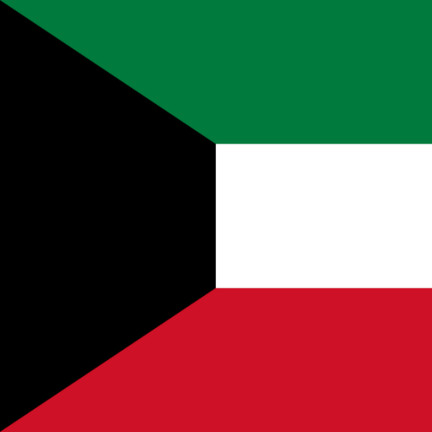Kuwait (Nation) AKA State of Kuwait

Kuwait
1990 AD
AKA State of Kuwait
Country in Western Asia situated in the northern edge of Eastern Arabia at the tip of the Persian Gulf, bordering Iraq to the north and Saudi Arabia to the south. Kuwait also shares maritime borders with Iran. Kuwait has a coastal length of approximately 500 km (311 mi).
Most of the country's population reside in the urban agglomeration of the capital city Kuwait City. As of 2021, Kuwait has a population of 4.67 million people of which 1.45 million are Kuwaiti citizens while the remaining 3.2 million are foreign nationals from over 100 countries.
Kuwait is an emirate. The Emir is the head of state and the Al Sabah is the ruling family which dominates the country's political system. Kuwait's official state religion is Maliki Sunni Islam. Kuwait is a developed country with a high-income economy backed by the world's sixth largest oil reserves. The Kuwaiti dinar is the highest valued currency in the world. Kuwait is the fifth richest country in the world by gross national income per capita. In 2009, Kuwait had the highest Human Development Index in the Arab world.
Historically, Kuwait was a strategic trade port between Mesopotamia, Persia and India. Oil reserves were discovered in commercial quantities in 1938. In 1946, crude oil was exported for the first time. From 1946 to 1982, the country underwent large-scale modernization, largely based on income from oil production. In the 1980s, Kuwait experienced a period of geopolitical instability and an economic crisis following the stock market crash. In 1990, Kuwait was invaded, and later annexed into one of Iraq's governorates by Iraq under Saddam Hussein. The Iraqi occupation of Kuwait came to an end in 1991 after military intervention by a military coalition led by the United States and various other countries.








